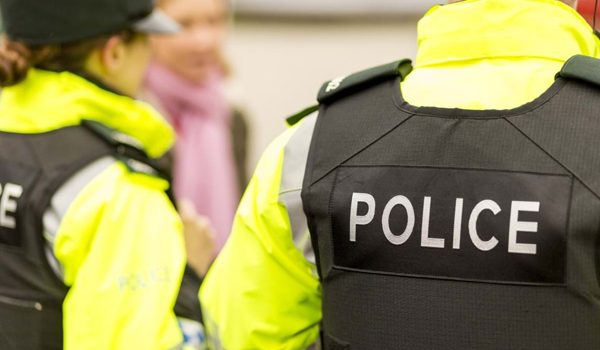More than 5,400 apply to join the PSNI as a student officer or call handler
The Police Service of Northern Ireland’s (PSNI) latest recruitment drive for student officers attracted more than 4,800 applicants.
A call handler campaign that ran alongside this saw more than 580 people apply.
While applications for student officers were slightly down from the previous campaign they were higher than expected, and Deputy Chief Constable Bobby Singleton said the large number of people who expressed an interest in becoming a police officer was “really positive”.
The three-week student officer recruitment campaign, which closed on February 12, attracted a total of 4,822 applications.
The call handler competition, which launched on January 27 and closed on February 17, attracted 587 applicants seeking to pursue a career in policing.
Mr Singleton said: “It is really positive to see that in the three week application window such a large number of people have expressed an interest in stepping up to serve our communities and keep people safe by becoming a police officer or call handler with the PSNI.
“Whilst applications are slightly down for student officers on the previous campaign, they have risen for the call handler position.
“We were conscious that we would be operating in very competitive job market, with the Northern Ireland unemployment rate at a record low of just 1.9 per cent. A recent report by the Ulster University’s Economic Policy Centre also highlighted a shortage of 5,440 workers a year, resulting in an undersupply of available workers across almost all sectors and industries.
“In this context, the police service was competing against a whole variety of other professions and we recognised that this will of course impact on the numbers seeking employment with us as police officers. We are also aware that this is being felt across many sectors, including the other blue light services.
“Throughout the recruitment campaigns, in addition to advertising across traditional social and digital media, we also held a number of outreach and engagement events across Northern Ireland to meet and interact with people who wanted to know about a career in policing.
“We met with so many brilliant and dedicated people from all backgrounds and walks of life whose talents will undoubtedly enhance our Police Service and improve the lives of the communities we serve.”
He added: “Being a police officer is not the career for everyone, but for those of us for whom it is truly a vocation, it is an exciting, challenging and varied one where you can literally change lives for the better because of the positive difference you make for people and communities.
“Each of the student officer applicants has now started their journey through a rigorous but worthwhile process, which has been developed to ensure that the very best candidates will go forward to be offered a place on the training programme.”
The chair of the Police Federation for Northern Ireland welcomed the fact that higher than expected numbers have applied to become student officers.
Liam Kelly said the final tally of 4,822 reflected extensive interest in a rewarding career in policing.
The PFNI chair added there was still some way to go to address real or perceived obstacles to getting more from a Catholic background to apply.
Mr Kelly said: “I welcome this level of response. It shows there is extensive interest in a police career while also pointing to work that is continuing to attract increased numbers from a Catholic background.
“In this batch, we have almost 29 per cent of applications coming from the Catholic community. I wish this figure was higher to better reflect our wider community.
“Recent negative commentary in the press on this response rate ignores the often-unseen efforts that have been undertaken by PSNI to drive up the number of Catholic applicants.
“The outreach work that was done was and remains extensive. The plain and simple truth is that despite best efforts, Catholics are still put off applying to become student officers for a number of reasons but especially because of threat levels posed by dissident republicans.
“Families are understandably nervous, if not fearful, of the risks and dangers loved ones face when they sign up for a career in policing. For many, it means having to cut ties with friends and carefully manage or restrict family visits.
“The sacrifices some Catholics officers have to make are greater than those faced by their colleagues. As a society, we have to address those barriers and not point the finger of blame at a Service that is trying its best to attract applicants that best reflect our wider community.”


